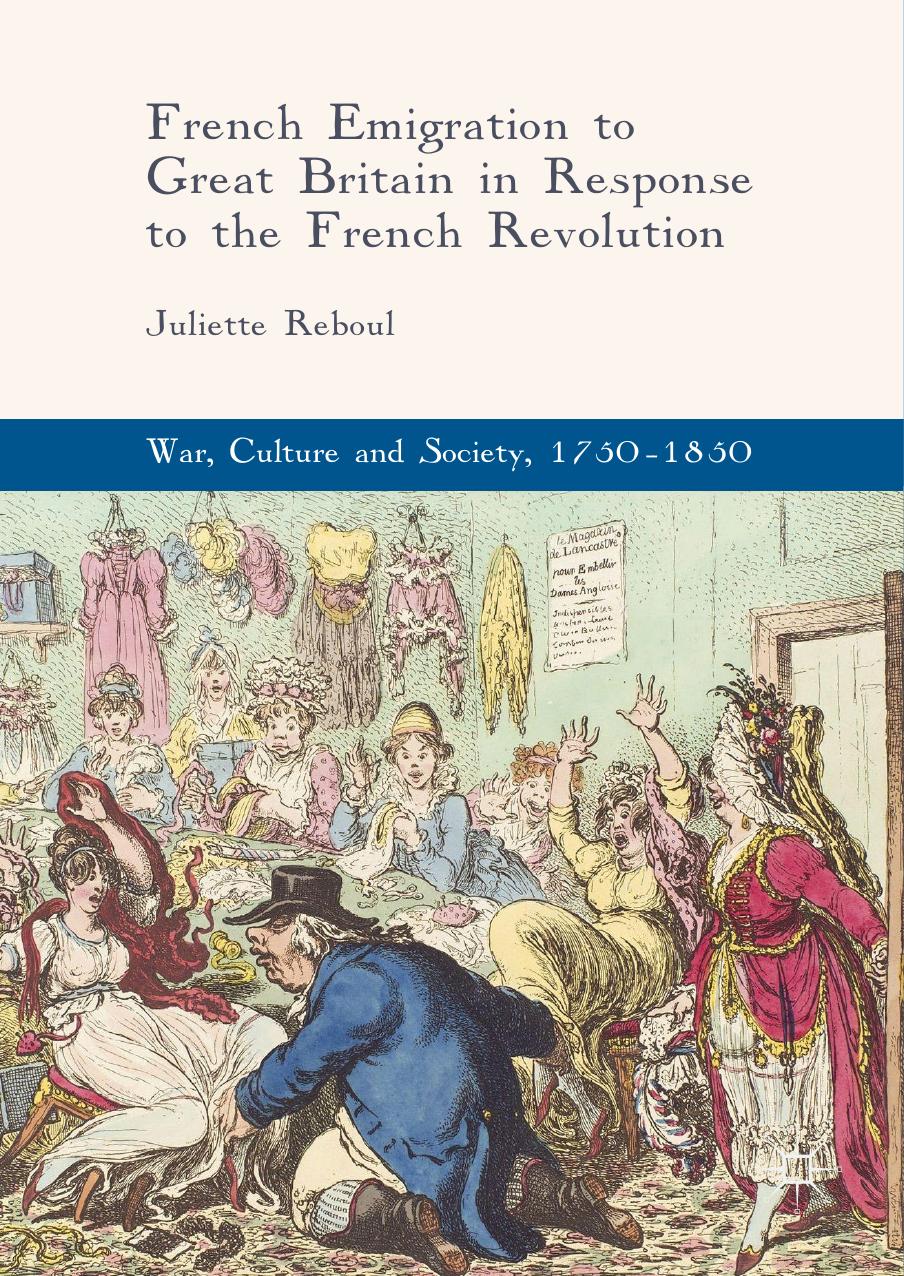French Emigration to Great Britain in Response to the French Revolution by Juliette Reboul

Author:Juliette Reboul
Language: eng
Format: epub, pdf
Publisher: Springer International Publishing, Cham
The morality and probity of emigrants were also questioned, especially in regards of financial dealings. A key part in the editorial manipulation of public opinion, minutes of trials reported in newspapers and a few open-letters reveal the existence of an emigrant underworld. The fabrication of fake assignats by emigrant priests encouraged by the Alien Office is a commonplace in the history of political emigration. 59 The emigrant population also circulated counterfeit English currencies. Joseph Gallet , described in the press as a French Emigrant, committed suicide in prison after he was arrested for forging £1 bank notes. 60 Bernard Huet was a veteran from Quiberon who benefited from governmental reliefs. In 1798, he was âindicted for feloniously forging and counterfeiting , on the 7th of November, a Bank-note for the payment of 30l. with intent to defraud the Governor and Company of the Bank of Englandâ. 61 Condemned to death , he was eventually pardoned as the Parliament discussed the re-enactment of the Aliens Act. 62 Contraband was another irk used to demonstrate how emigrants were a burden on local economies. For instance, the True Briton made an example of a French emigrant arrested for smuggling French gloves in England, âdenying the thousands of individuals the reward of that industry produced by their own manufactureâ. 63 Female prostitution , or at least sexual promiscuity , was a favourite theme in the denunciation of the mores of the French population. The Morning Post and Gazeteer denied a Miss Courtois the right to pretend to the name of French emigrant; others known prostitutes were referred to as âdaughtersâ of emigrants but not as emigrants themselves. 64 The morality of French women working in the fashion industry was questioned. In 1800, James Gillray published The Man of Feeling, in search of Indispensibles, subtitled a scene at the little French milliners, a suggestive play on the title of Henry Mackenzieâs 1771 sentimentalist novel. 65 In French milliners â shop Le Magasin de Lancastre, a porcine looking Prince of Orange, in exile in London since 1795, forcefully grabs the ankle of two milliners in search of an indispensable, a novelty pocket. Ten young-looking milliners observe the scene, some visibly amused, as another woman enters the room. Her face is partly hidden with a large hat, but her undergarment and both her ankles are exposed to the viewers. These uninhibited women depicted by Gillray are perhaps noble emigrants, as the manufacture of straw-hats was âa feature of the emigration and [was] probably the best-known product of émigré labours in Londonâ. 66 Despite vilifying campaigns against French emigrants supported by populist politicians and parts of the British press, advertisements written by individuals selling services and who identified themselves as French emigrants were only published once or twice in the span of a few weeks, yet sometimes simultaneously in several newspapers. This could indicate that the French emigrants advertising their services in London, Middlesex and Surrey, were employable.
Download
French Emigration to Great Britain in Response to the French Revolution by Juliette Reboul.pdf
This site does not store any files on its server. We only index and link to content provided by other sites. Please contact the content providers to delete copyright contents if any and email us, we'll remove relevant links or contents immediately.
| Africa | Americas |
| Arctic & Antarctica | Asia |
| Australia & Oceania | Europe |
| Middle East | Russia |
| United States | World |
| Ancient Civilizations | Military |
| Historical Study & Educational Resources |
Magic and Divination in Early Islam by Emilie Savage-Smith;(1533)
Papillon by Henry Charrière(1430)
Bohemians, Bootleggers, Flappers, and Swells: The Best of Early Vanity Fair by Bohemians Bootleggers Flappers & Swells- The Best of Early Vanity Fair (epub)(1402)
Ambition and Desire: The Dangerous Life of Josephine Bonaparte by Kate Williams(1388)
Twelve Caesars by Mary Beard(1315)
Operation Vengeance: The Astonishing Aerial Ambush That Changed World War II by Dan Hampton(1162)
What Really Happened: The Death of Hitler by Robert J. Hutchinson(1161)
London in the Twentieth Century by Jerry White(1146)
The Japanese by Christopher Harding(1131)
Time of the Magicians by Wolfram Eilenberger(1126)
Twilight of the Gods by Ian W. Toll(1117)
Lenin: A Biography by Robert Service(1075)
The Devil You Know by Charles M. Blow(1024)
A Social History of the Media by Peter Burke & Peter Burke(976)
Freemasons for Dummies by Hodapp Christopher;(964)
Napolean Hill Collection by Napoleon Hill(942)
Henry III by David Carpenter;(919)
The Rise and Triumph of the Modern Self by Unknown(913)
Richard III (The English Monarchs Series) by Charles Ross(908)
